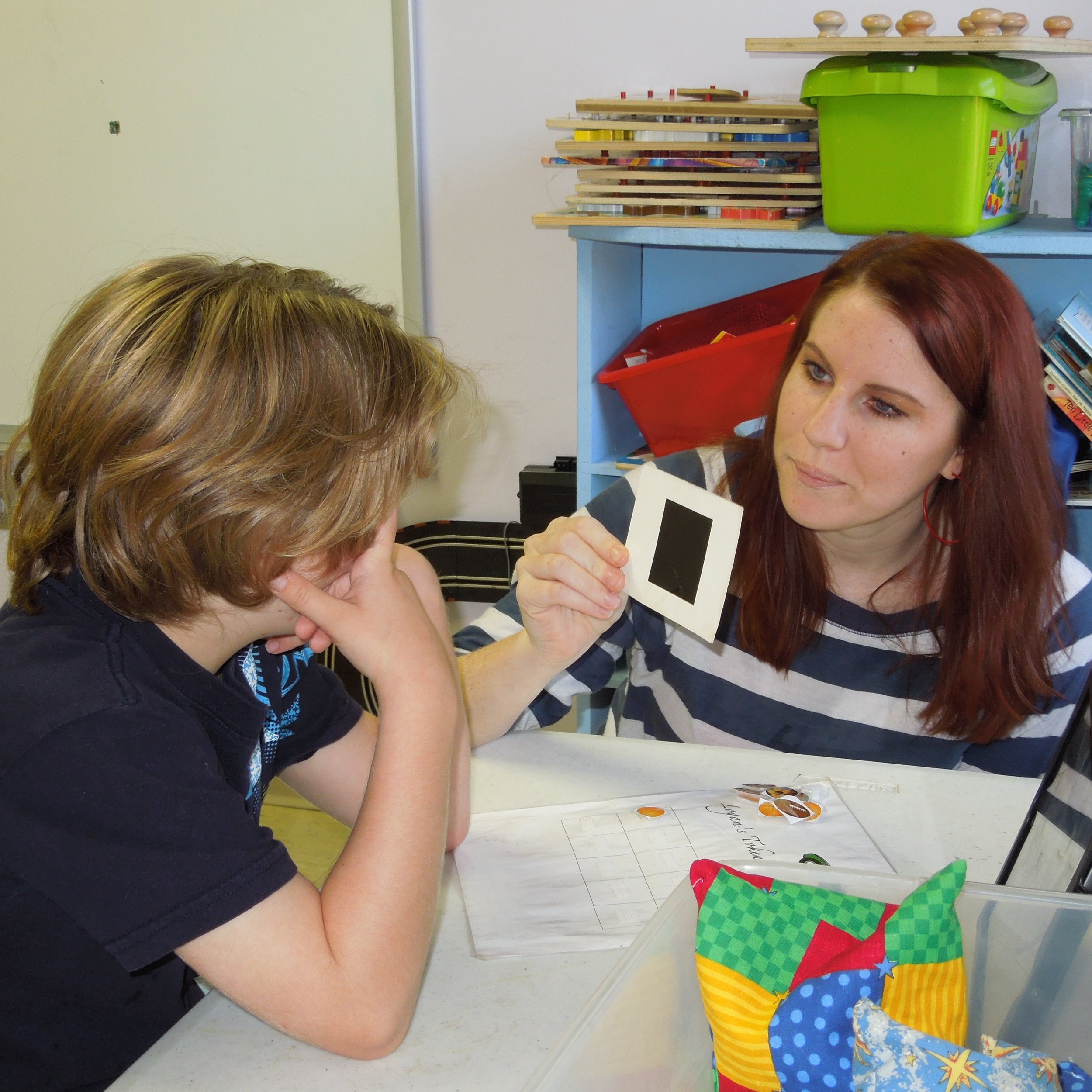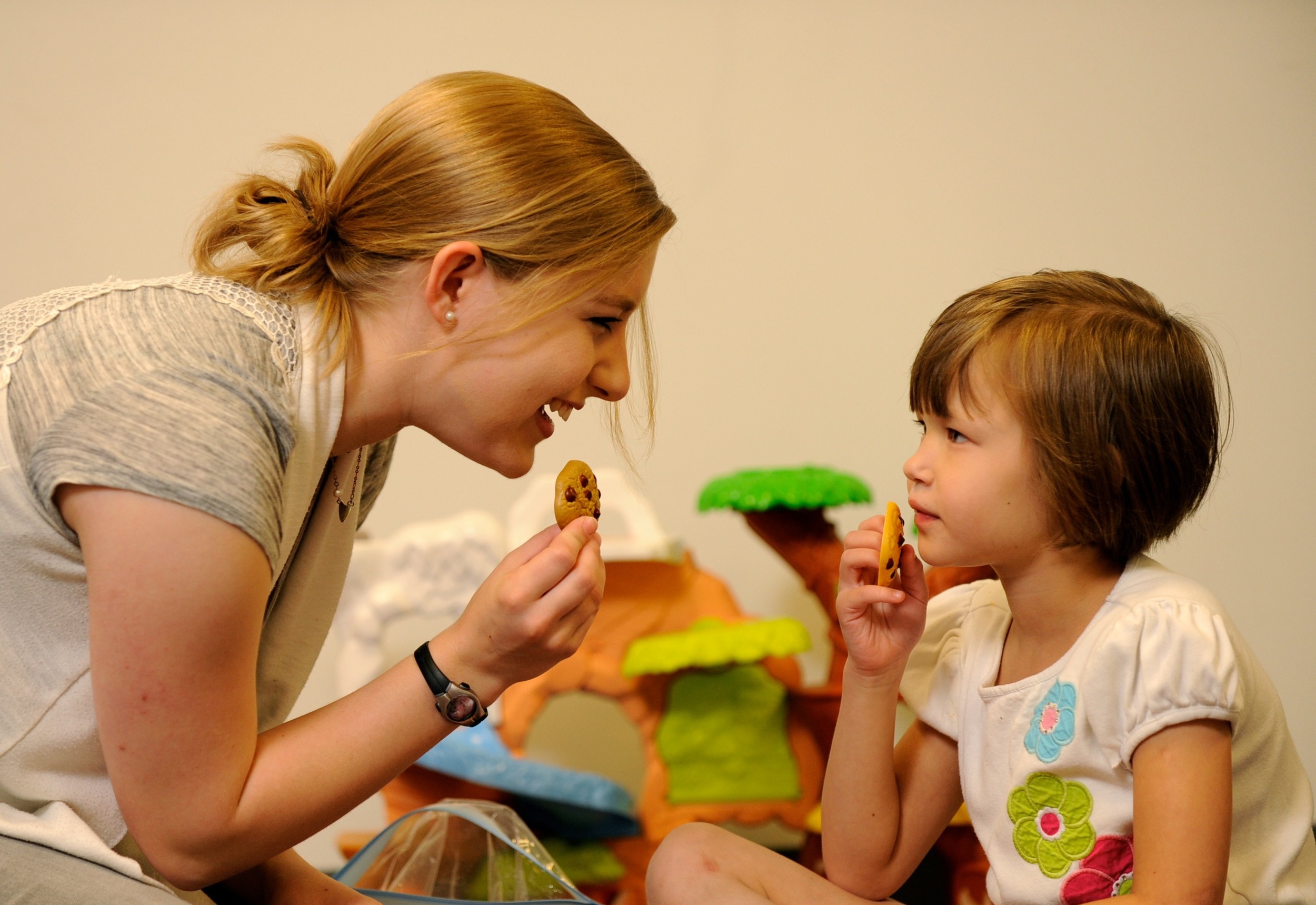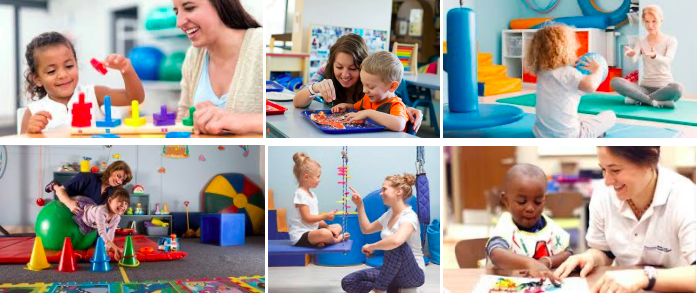
Our ABA Therapy Services
Applied Behavior Analysis (ABA) therapy is currently the best practices treatment for children with autism. Our ABA therapy program, known as Hope Reach, has been serving children since 2007, leading the way in the state of South Carolina. We offer 9 clinical settings for therapy as well as in-home and community options.
ABA therapy uses concepts that are familiar (such as reinforcement, prompting, generalizing) in systematic ways to teach skills and to replace problem behaviors with more appropriate ones. ABA is typically provided in an individualized setting according to a personalized treatment plan and treatment schedule based on the needs of the child, adolescent, or adult with autism.
Each child’s treatment program is individualized and delivered by a well-trained team consisting of Behavior Technicians overseen by Behavior Analysts. We offer both comprehensive and focused treatment programs:
Comprehensive treatment programs target needs across a range of domains with a higher intensity of services (e.g, focused on acquiring communication, social, and adaptive skills for 25-40 hours per week).
Focused treatment programs target specific individual needs (e.g., reduction of problem behavior, community engagement, generalization of social skills) with a lower intensity of services (e.g., 10-15 hours per week).
Treatment services are typically provided with a ratio of one technician to one client, but that ratio can be decreased or increased with different service options such as group services or services targeting the reduction of destructive behavior.
Many children with a new diagnosis start with 25-40 hours of treatment per week, with a team of 2-3 technicians working individually with the child for a block of time. We consider families to be a critical part of the treatment team. We typically hold collaborative monthly meetings with families to maximize each child’s progress. Alongside ABA treatment, we employ in-house speech and occupational therapists who can be part of the child’s team. As the child makes progress and is prepared to participate in small group or classroom settings, we may adjust treatment locations and reduce the amount of weekly treatment.
PHF is committed to serving individuals impacted by autism across the spectrum, recognizing that many are also diagnosed with co-occurring disorders (e.g., ADHD, anxiety). Co-occurring diagnoses require a closer level of collaboration with the family and with other providers. ABA treatment can be appropriate and successful for those with autism and co-occurring disorders; however, it may not be appropriate for individuals diagnosed with autism who also have:
a degenerative condition with current signs of skill loss (e.g., loss of motor skills),
frequent and severe seizures with a history of skill loss (e.g., regression in communication), or
another condition where autism-specific therapy is not recommended.
ABA therapy is funded by many insurers and Medicaid (such as TEFRA, which can be accessed through the child's diagnosis rather than financial status, or SSI Fee for Service.) We also accept private pay. We are grateful for financial support from Grace Church, United Way of the Lakelands, and United Way of the Piedmont to help meet the funding gap for our therapy services.

Applied Behavior Analysis Explained
ABA is a form of behavior analysis based on the findings of B.F. Skinner in the 1930s, including his book Verbal Behavior, published in 1957. In 1968, D.M. Baer, M.M. Wolf, and T.R. Risley defined ABA as the process of systematically applying interventions based upon the principles of learning theory to improve socially significant behaviors to a meaningful degree, and to demonstrate that the interventions employed are responsible for the improvement of behavior. They described ABA as having seven dimensions:
application (social significance)
behavioral (changes in behavior that are measurable)
analytical (controllable)
technological (replicable)
conceptually-systematic,
effective, and
general (persists over time, various environments, and spreads to other behaviors).
In 1987, Dr. Ivar Lovaas published a study showing the efficacy of ABA in treating children with autism, a finding that has been confirmed in hundreds of published studies and endorsed by many, including the US Surgeon General.
Speech Therapy Services
Project Hope Foundation is excited to offer speech therapy with ABA-trained Speech-Language Pathologists (SLPs) at select campuses! Our SLP’s familiarity with principles of ABA (reinforcement, prompting and fading of prompts, pairing with the client to maximize compliance, behavior plans, etc.) helps maximize the effectiveness of their speech therapy sessions. We understand the importance of the child's routine and individual preferences. If the child has a behavior plan in place, they know how to follow it. Their ABA experience and on-site presence promote increased collaboration between ABA therapy and speech sessions, maximizing results for each child. We have the flexibility to work in the environment that is best for the child, whether that be in his/her typical therapy room, classroom, or a designated speech therapy area. We can also attend team meetings when warranted. By offering in-house speech therapy, we hope to reduce parental stress about transporting children between ABA and speech therapy.
Our SLPs strive to think outside the box to make sessions run smoothly. We recognize the importance of making the speech environment fun to help accomplish the client's goals. We maintain open communication with parents to be sure to address each family's priorities.
An SLP therapy session can focus on the following areas:
articulation,
receptive and expressive language,
fluency (stuttering),
voice/resonance,
oral motor weakness (dysarthria),
oral motor planning deficits (apraxia),
feeding/swallowing disorders,
AAC (speech-generating devices), and
cognitive aspects of communication.
Parents of current clients interested in speech therapy services should contact your team supervisor. We currently accept Medicaid or private pay funding for speech services.
Occupational Therapy Services
Project Hope Foundation is excited to offer occupational therapy (OT) at select campuses! Pediatric OT facilitates development of sensory and motor functions, which enables children to interact with their environment and participate in daily activities (learning, play, self-care) as independently as possible.
Occupational therapy can help improve functioning in children who have difficulty with the following:
❏ Processing touch, sound, movement and other sensations
❏ Fine motor skills, especially in handwriting, coloring, drawing or cutting
❏ Hand-eye coordination and whole body coordination
❏ Feeding skills, including sensory or oral motor development
❏ Independence in self-care skills, including dressing and feeding
❏ Attention to task and organization skills
Families will benefit from having ABA, speech therapy and occupational therapy provided in the same location, allowing greater collaboration and integration of therapies.
Parents of current clients interested in occupational therapy services should contact your team supervisor. We currently accept Medicaid and private pay funding for occupational therapy services.
Getting Started
If you are interested in receiving ABA therapy and/or educational services, please fill out our Hope Services Application.
We are in-network and accept most insurances (including Medicaid that is Fee for Service or under certain Managed Care Organizations). We will check to see if your plan covers ABA therapy after receiving your application for services.
**Please note that we are not in-network and therefore do not accept Tricare.
Be prepared to submit the following (if they apply):
A front and back copy of your primary insurance card (required)
A front and back copy of your secondary insurance card
A copy of the full diagnosis paperwork for your child’s autism diagnosis (required)
A copy of your child’s most recent IEP (if applicable)
Once we confirm that ABA therapy coverage is included in your insurance plan and your application is complete, you will remain on the list until a potential slot comes available at your site. Once a potential slot becomes available, the Intake Coordinator will then send you our Client Information Questionnaire. This will give us the information we need to prepare for a Prospective Client Evaluation Session with you, your child, and one of our Board Certified Behavior Analysts (BCBA).
Once this initial evaluation has been completed, we will make a placement recommendation for your child. If you accept this recommendation, you will be given a tentative wait time for this specific placement.
When the slot matching the recommended placement for your child is confirmed, we will move forward with scheduling an in depth assessment billed to your primary (and secondary, if applicable) insurance. After this assessment, your child’s supervisor will put together their treatment plan and submit it to your insurance company. Upon receiving the authorization to start services from the insurance company we would move forward with creating a therapy schedule for your child.
**Please note that the length of time needed to move through the intake process is dependent on many internal and external factors including, but not limited to, your specific primary funding source and our caseload availability.
PLEASE NOTE: If you have already completed an application, please do not reapply, instead, email clients@projecthopesc.org for updates or questions regarding the status of your child's application.
Our Hope Reach ABA therapy program produces big numbers - over 4,000 hours weekly, nearly 200,000 annually. But often the most important number is 1 - one new word, one unexpected hug, one bike ride towards independence.










